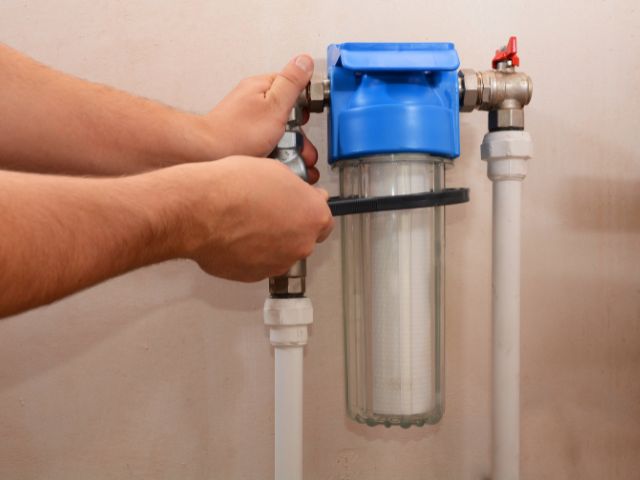

When you experience a loss in water pressure, that means a lower volume of water is moving through your home’s plumbing. Tasks like showering, washing dishes, doing laundry, and using sinks typically take longer and can become frustrating when your home’s water pressure is lower than normal. Discover three common causes of low water pressure in houses so you can fix the problem and get back to everyday life.
You’re probably familiar with the concept of a clogged pipe preventing water from draining out of a sink or bathtub. But blockages in water lines can also decrease pressure.
Many households have hard water, which contains an excess of minerals. As the water flows through a pipe, it can leave mineral deposits on the pipe. Over time, the minerals build up and restrict the area through which water can flow.
You can apply vinegar and baking soda to fixtures and faucet aerators to remove mineral buildup. If you want to prevent hard water scaling, install a water softener system.
Leaking pipes are another common cause of low water pressure in houses. It’s easy to see water pooling from a large leak, but some leaks are only noticeable when you turn the water on, such as when you use your washing machine.
You can test for leaks by checking your water meter. Turn off all the taps and water-using fixtures in your home and record the reading of your water meter.
After two hours of not using any water—including toilet flushing—check the meter again. If your first and second readings have different numbers, you have a leak. A licensed plumber can inspect and repair any breaks in water pipes.
Issues with a whole-house water filtration system can cause a drop in water pressure. In fact, water pressure loss can be a sign that your water filtration system is failing. Also, you can experience trouble with adequate water pressure if your system isn’t correctly sized for your home. Fortunately, a water specialist can help you select the right design.
Changing your system’s filters is a key maintenance task. If the filter elements get clogged with debris and sediment, this will cause water pressure to drop. Depending on your system and water usage, you should replace the filter every six months.
Blocked or leaking pipes often lead to water pressure loss. If you use a water filtration system, make sure the system has the right capacity for your home and that you change the filters regularly. And if necessary, a professional plumber can inspect your home and repair or replace damaged plumbing components.
24World Media does not take any responsibility of the information you see on this page. The content this page contains is from independent third-party content provider. If you have any concerns regarding the content, please free to write us here: contact@24worldmedia.com
